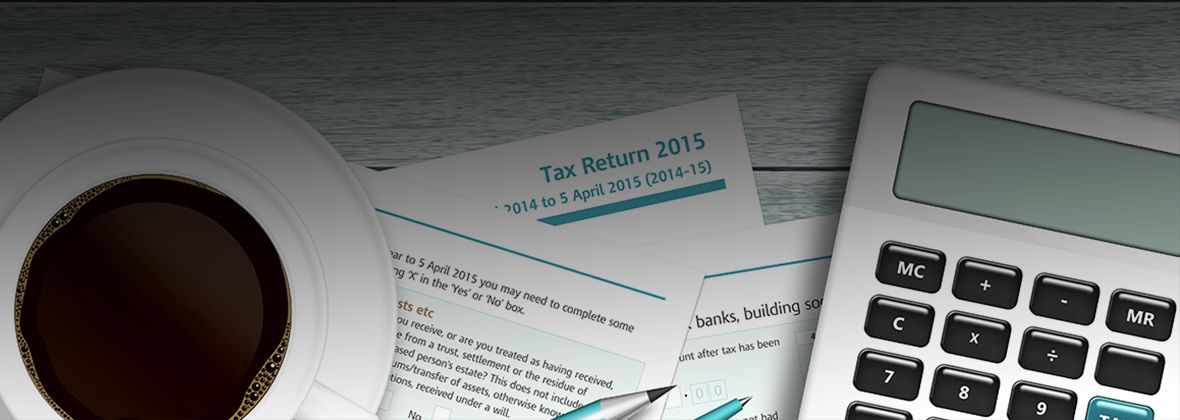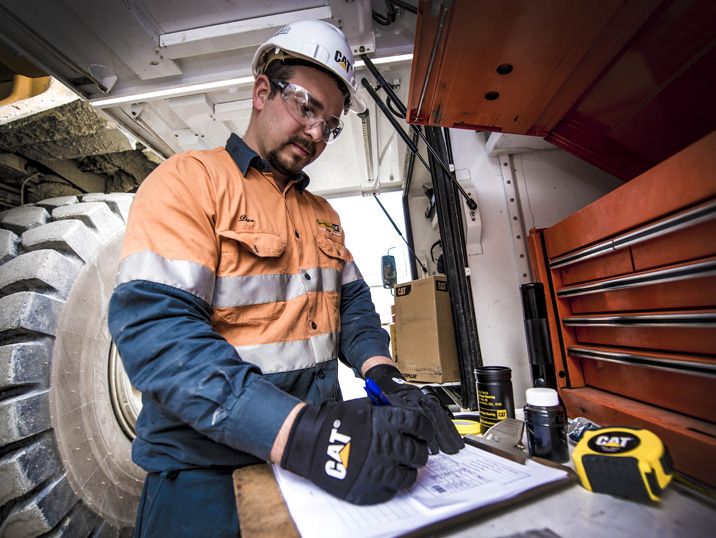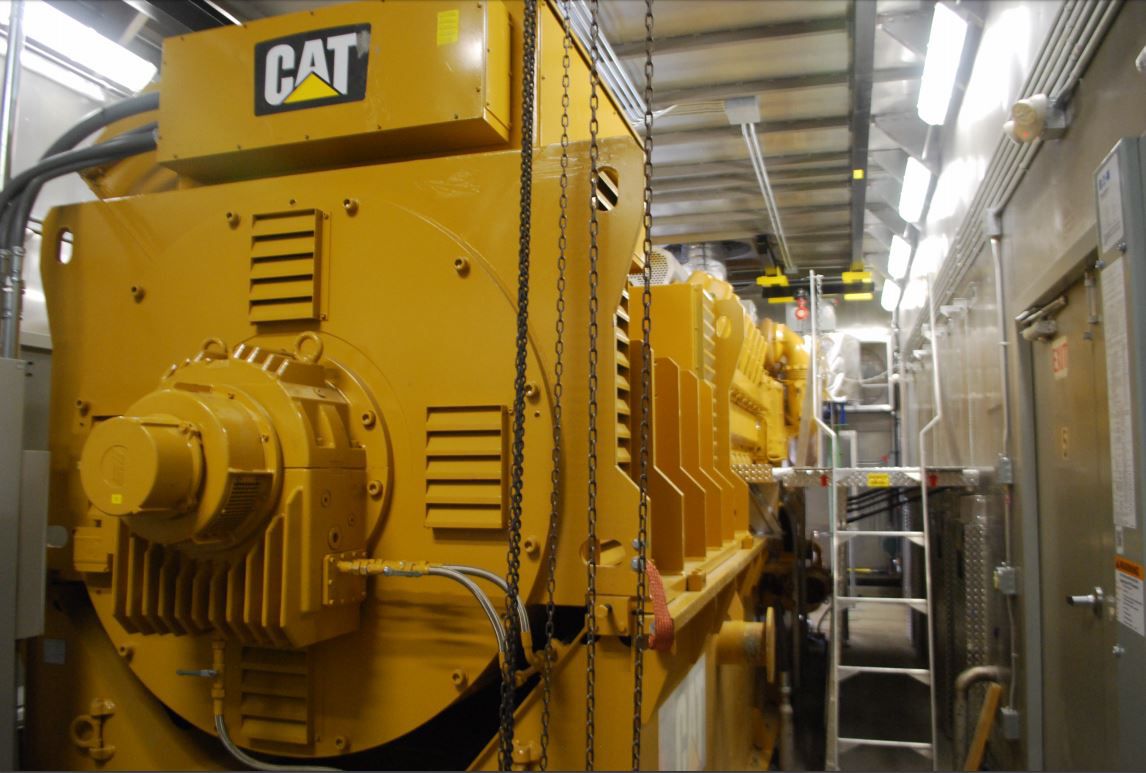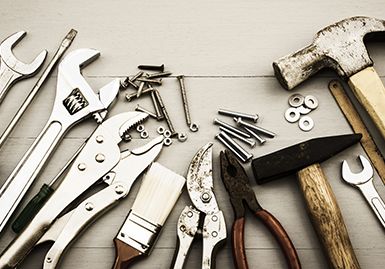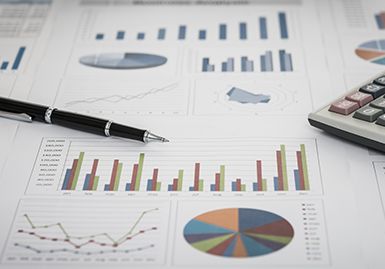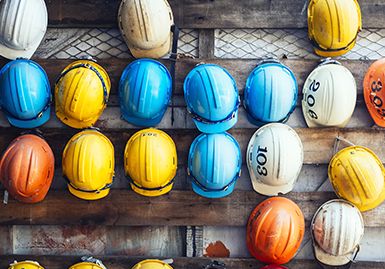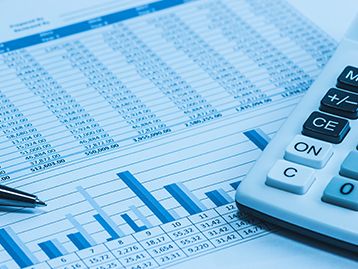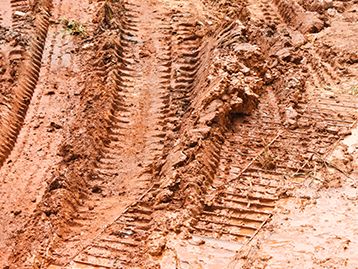

Sign In
Welcome! Sign In to personalize your Cat.com experience
If you already have an existing account with another Cat App, you can use the same account to sign in here
Register Now
One Account. All of Cat.
Your Caterpillar account is the single account you use to log in to select services and applications we offer. Shop for parts and machines online, manage your fleet, go mobile, and more.
Account Information
Site Settings
Security
Your balance sheet lists your assets as compared to liabilities and remaining net worth or equity. Analyzing the balance sheet is a key responsibility for business owners and decision-makers. Knowing what heavy equipment, cash in reserve and other assets you have available in addition to the amount owed to creditors and the equity or book value that exists, can help guide you to making more informed and better decisions for your business. Keep these five tips in mind the next time you review your balance sheet.
1. Make sure your balance sheet adds up
It's a simple yet extremely important piece of advice. Large companies have the luxury of hiring dedicated employees and several layers of review for their balance sheets, but you may have a trusted staff member, or an outside accountant create your balance sheet.
One advantage you have as a business owner in a smaller enterprise is an intimate knowledge of nearly all of your company's activities. Put what you know to use by engaging in a comprehensive review. Sure, calculating and recalculating the numbers to confirm accuracy is critical, but be sure to dedicate time to ensure no items are missing from your balance sheet.
2. Look for major outstanding receivables
Unfortunately, business debts aren't as simple as consumer purchasing. You can sign a contract, complete the required work, and still wait to receive payment. Some delays are inevitable, but they should never drag on for an extended period of time without communication between you and the individual or business that owes you money. While you might not be able to collect immediately, confirm that a payment plan can be developed and execute. Whether an error led to a lack of payment or your debtor is simply dragging their feet, a balance sheet review helps you prioritize recovering outstanding receivables.
3. Monitor working capital closely
Working capital is a key predictor of short-term business resiliency and future financial stress, as The Balance pointed out. Because this figure represents what would be left over if a business used short-term resources to address short-term liabilities, it helps you identify what portion of available assets could be designated for growth. This is vital for companies that are considering acquiring more heavy equipment and similarly big investments - although there are other alternatives to outright purchasing that can also help you manage your balance sheet.
Working capital can also help you understand your options in the face of an unpredictable business downturn or other emergency that could negatively impact operations. If you don't have much in the way of working capital, you should make it a priority to increase assets and reduce liabilities to create more stable financial footing. If you need to boost working capital for a specific need, you can also consider a working capital loan from Cat Financial. (Some financing options not available in all regions).
4. Consider alternatives to purchasing major assets
Purchasing heavy equipment outright can significantly impact both your balance sheet and your business as a whole. You get to add the equipment as an asset, but you lose an equivalent amount in working capital. This reduction in flexibility can be difficult for organizations to manage, especially if a hardship crops up shortly after purchase. Cat Financial offers leasing and financing options that can help you lessen the financial burden that accompanies a direct acquisition. Each option brings its own advantages in terms of how it appears on your balance sheet as well, so be sure to carefully consider both loans and leases to decide which is best for your company's unique financial situation.
5. Take care to understand what your balance sheet tells you
Your balance sheet offers a lot of important information, as long as you know how to interpret it. It's easy to read an article that tells you to take the time to review your balance sheet, but the obligations that come with owning and operating a business can get in the way. Your balance sheet is important enough that it should be regularly reviewed, whether that means blocking off your calendar or setting aside time once you come home from the office. Your balance sheet should be considered an asset in and of itself.
Additional Articles
Find in-depth articles to answer your questions about construction equipment financing, and expert tips to help you navigate today's economy as a successful business.
-
Tools for Success: How to develop a balanced scorecard for your company
Maintaining the equipment you acquire through various finance and lease options is vital for getting a consistent return and keeping your business moving forward.
Get Started -
The Immediate and Long-term Value of Captive Finance Companies
Partnering with an experienced captive financing company can provide benefits your construction business needs to excel.
Learn More -
Protecting your small business - 3 reasons to make sure you're covered
The top 3 benefits you receive from an extended protection plan
Learn How -
4 Easy Steps to Break Down Financial Barriers
Consider this four-step process when seeking a route to break down the barriers to your business growth.
Learn More -
Protect Your Livelihood by Protecting Your Equipment
Here are three options for protecting your equipment to prevent unnecessary downtime.
Learn More -
4 Easy Steps to Protect Your Cat Engine or Generator Set
Choosing coverage for your engine or generator set is as easy as following these four steps
Learn More -
6 Helpful Tips When Applying for Commercial Financing
Financing offers a means to overcome certain business hurdles. Consider these six tips when applying for commercial financing.
Learn More -
How to Deal With Financial Hardship in the Construction Industry
External factors can derail your business plans. Consider these three useful tips for dealing with financial hardships.
Learn More -
Comparing Equipment Lease vs. Loan
Lease or Loan? These tips should help you decide which best fits your business needs.
Learn More -
3 Tips for Mining Companies Looking to Generate Cash Flow
With commodity prices squeezing cash flow, mining companies everywhere are seeking ways to control costs.
Learn More -
Legacy planning: Your business after you
Legacy planning is a vital consideration for your business-whether you plan to retire in a few years or a few decades.
Learn More -
Business health: Managing risk to make effective investments into your enterprise
How do you approach business risk? Answering this important question can help you maximize your resources.
Learn More -
Business health: The basics of a profitability review
Conducting a basic profitability review can help you identify opportunities for growth and where to cut spending.
Learn More -
Tools for Success: Building a Strong Bidding Template
Crafting a strong bidding template can help your company secure work and please clients.
Learn More -
Reduce Workplace Accidents with Effective Safety Strategies
Safety should be the number one concern for construction companies of any size, and regardless of location.
Learn More -
Business health: Identifying Priorities That Contribute to Growth
The financial and operational health of your business influences many actions you take as an owner.
Learn More -
The Importance of Having an Effective Construction Safety Culture
A strong, consistent, and proactive safety culture can go a long way toward preventing accidents among employees and reducing the negative outcomes that arise from on-the-job injuries.
Learn More -
Tips For Improving Your Credit Score
Increase the likelihood of getting the equipment financing you want at the terms you need.
Learn More -
Effective use of cash vs. credit for equipment purchasing
A guide to help your business determine the best way to acquire heavy machinery and equipment.
Compare the Options -
4 Benefits of an Effective Business Plan
The strategy behind a well-crafted business plan can contribute to efficiency and growth.
Discover the Benefits -
Managing Cash Flow When the Market Takes a Downturn
A down market can significantly impact an industry by influencing nearly every sector of the overall economy.
Learn More -
The Truth About Renting | Part 2
Renting machinery can help your company take on major tasks more effectively and leads to better bottom-line results.
About Renting -
The Truth About Renting | Part 1
In this article, we will review 5 things you need to think about before you sign your rental agreement.
About Renting -
Tools for Success: Grow Your Business With An Effective Cash Flow Template
Business owners need to pay attention to a variety of metrics, measurements and other pieces of information to stay on top of operations.
Learn More -
Equipment Financing: Answering Questions and Debunking Myths
Learn Your End-Of-Term Options And Unlearn Myths Like ‘You Need Perfect Credit’
Learn More -
How Technology Can Help You Operate Your Business More Efficiently
From multinational companies to a new construction or forestry business just starting out, organizations of all types rely on the ability of digital tools.
Technology Tips -
Bids That Beat the Competition
Get 4 exclusive tips to help you improve your bidding strategy to win construction projects.
See Bidding Strategies -
What the Belt and Road Initiative Means for the Modern Economy
Understanding how new connections can transform local, national and global economies.
About the Initiative -
What will the World Look Like After the Belt and Road Initiative is Complete?
Looking at the Belt and Road Initiatives's impact on global commerce and its historical precedent.
About the Initiative -
Budgeting 101: How to Create a Budget for Your Business
A budget is a key component of building a strong foundation for your business. You can leverage your budget to identify your company's strengths, weaknesses, opportunities, and potential concerns.
Get the Guide -
Understanding the Importance of the Belt and Road Initiative
Learn how this transformative project could affect the global economy.
About the Initiative -
Grow Your Business with These 4 Tips
A guide to bettering your business this year.
Get the Guide
